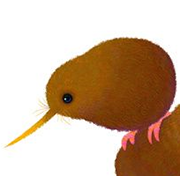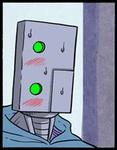|
Jazerus posted:get the xenology mod, it has lots of cool traits to combine as a bio ascender and is just generally great for having more species diversity. i can't play without it Any recommendations for other mods?
|
|
|
|

|
| # ? May 26, 2024 06:05 |
|
Jazerus posted:yeah i think this is where i'm going to end up with my modded weights
|
|
|
|
I know that's what he said, but every other random choice in Stellaris works by assembling a weighted list and then rolling on it. I have to assume it's the same system but with insane weighting levels. If it's not then
|
|
|
Strudel Man posted:Jesus, I just realized/remembered. Wiz's post that I keep quoting said that the operation of the weighting system is to pick the highest weight, not to select randomly from among the choices proportionate to the weight. We'll be able to change how the weights are calculated (almost certainly, anyway), but it seems unlikely that we'll be able to modify what it does with the weights. That means approximating proportionate growth could actually be very difficult to accomplish; you don't need 2 humans to have a quarter of the weight of 8 blorg, you need them to have a 20% chance of having greater weight, and the same 20% chance of greater weight if you're instead looking at 10 humans and 40 blorg. Honestly, if that random chance value is high enough the system will probably be fineish.
|
|
|
|
|
Get rid of pops and just have sliders. Actually unironically I think the sliders in MOO have yet to be topped in terms of a simple but extremely effective planet management system that even had quite reasonable interface aids for large empires. And the population/factory system along with the technologies that you could focus on to enhance either has yet to be topped. 
Baronjutter fucked around with this message at 21:53 on Aug 26, 2018 |
|
|
|
I don't think I'd like it if it was abstracted that far. I'm stoked to no longer have to mass click the yellow up arrows, but I still want to see my space dudes when I look at a planet.
|
|
|
|
Yeah, pops good, space dudes good. It's kind of been lost in diasporagate but I'm super hyped by everything else said so far. I'm really looking forward to getting some strong dudes into my empire and have them just migrate naturally into the mines. Super good stuff.
|
|
|
|
Splicer posted:I know that's what he said, but every other random choice in Stellaris works by assembling a weighted list and then rolling on it. I have to assume it's the same system but with insane weighting levels. If it's not then Eiba posted:He said there was a "random chance" weight too. So like, I read that as adding a random number to each weight, which is effectively randomizing for things that are close enough.
|
|
|
|
Strudel Man posted:If it's a weighted random selection, that would be an exceptionally odd way to phrase it, since randomness would be inherent in the system anyway.
|
|
|
|
ďRandomness is appliedĒ is such an odd way to phrase it that Iím going to have to agree with Strudel Manís interpretation. Especially a good chunk of the playerbase is probably familiar with how tech/event weights work. Plus it naturally leads to the minority always growing if itís small enoughóthe difference in weight is too great for the majorityís weight to be higher even if they roll the maximum on the random weight component and the minority rolls 0.
|
|
|
|
|
Hm. On the bright side, I believe I may have figured a way to get decent-looking growth probabilities, even using a "pick the highest weight" system. Assuming at least that I can use the current population of the planet as a weight divisor, so that speciespop * 100 / planetpop could be used to start with a base weight equal to the percentage of that species on-planet. Given that, simply adding d200 to each weight gives the following growth probabilities for a given species A based on its current population percentage, assuming no other factors and given only two species to worry about :code:Strudel Man fucked around with this message at 23:47 on Aug 26, 2018 |
|
|
|
small brain: keeping update details under wraps until the update is ready for launch Normal brain: dev diaries Galaxy brain: hint at what your doing and let unpaid forums posters fill in all the variables for you
|
|
|
|
Agean90 posted:small brain: keeping update details under wraps until the update is ready for launch
|
|
|
|
TalonDemonKing posted:if only biomodding was as cool as psionic awakening or robots Agreed!  
|
|
|
|
Yeah, outside of the incredibly incorrect growth system that might produce demographic oddities if you're really paying attention over a few centuries, everything in this update has sounded amazing so far. Let's not lose sight that this is going to be probably on par with the FTL and border changes in terms of massive improvements to flawed systems. It honestly might even be bigger because we've yet to hear about trade.
|
|
|
|
Well I think the growth system is fine, the reasoning behind it makes sense, and the tantrums over it were silly.
|
|
|
|
Yeah, seeing the threat lose it's poo poo over it was funny at first but then just became tiring.
|
|
|
|
Looking at the still "mixed" review status on steam, reading all the most recent negative reviews from the last months very few mention chinese localization anymore (although steam might be filtering those out for me?) and it's still just people really really upset at the FTL changes. After that it's people complaining about the game's DLC model and that we've been paying for the devs to keep throwing new systems at the wall and seeing what sticks. After that it's just fairly incoherent very upset people who aren't really making a point about anything. I wonder when the tide will turn again or if we're looking at a new wave of incredibly calm and reasonable negative steam reviews. "I bought this game for the tile system and now they ripped out the one good thing in the game"
|
|
|
Strudel Man posted:Hm. On the bright side, I believe I may have figured a way to get decent-looking growth probabilities, even using a "pick the highest weight" system. Assuming at least that I can use the current population of the planet as a weight divisor, so that speciespop * 100 / planetpop could be used to start with a base weight equal to the percentage of that species on-planet. Given that, simply adding d200 to each weight gives the following growth probabilities for a given species A based on its current population percentage, assuming no other factors and given only two species to worry about : 15% is incredibly low, and so as a proportion it's only going to get lower as time goes on. There's an 85% chance that a majority pop will grow next, so that's probably going to happen, and now the minority is an even smaller minority with an even smaller chance of growing. If you start with 19 humans and 1 blorg, it would be reasonable to see 8 or 9 humans in the time it takes to randomly get an additional blorg, ignoring the fact that each human lowers the chance of blorgs. You might be be going from 5% to 7% or 10%, but in Stellaris terms... that's one or two grown pops out of ten grown pops total. That's insane. Even a boost like that feels like a pittance given the numbers we've got in Stellaris. You'd need pretty massive growth potential to ever see a single minority pop grow. I don't care how realistic it would be in preserving ratios, it feels boring and frustrating. I still don't like majority growth being stopped entirely by a minority pop, but a system that picks a species at actual random with no weight seems like it would be more satisfying, regardless of how unrealistic it is. Your "fixed" numbers are actually making me side with Wiz's method, on balance. It's certainly making clear how unsatisfying a "realistic" approach to demographics is when applied to the deeply unrealistic pop system. Baronjutter posted:Yeah, outside of the incredibly incorrect growth system that might produce demographic oddities if you're really paying attention over a few centuries, everything in this update has sounded amazing so far. Let's not lose sight that this is going to be probably on par with the FTL and border changes in terms of massive improvements to flawed systems. It honestly might even be bigger because we've yet to hear about trade. We had just heard about most of the cool stuff already, but not the specifics of pop growth, which seem a bit off.
|
|
|
|
|
Eiba posted:Looking at these numbers and thinking about the implications... the way Wiz has it makes a lot of sense. The alternative way that Wiz described is, to my understanding, that if you had 19 humans and 1 blorg, at least the next 12 pops to grow would all be blorg. I don't really understand why that would be preferable to having, on average, about 1 blorg in the next 7 grown pops. Strudel Man fucked around with this message at 10:07 on Aug 27, 2018 |
|
|
|
Eiba posted:Looking at these numbers and thinking about the implications... the way Wiz has it makes a lot of sense. Eiba posted:Yeah, this should be stressed. I think all I've done is complain since the last development diary, but honestly I'm more pissed at the fact that the changes look so fun and good that there's no way for me to play Stellaris in its current state anymore.
|
|
|
|
Strudel Man posted:edit: I thought you were misunderstanding the math; I guess you're really not. Yes, the system I've described would tend to rather slowly grow the ratio of minority pops on already-settled worlds, changing it only gradually over time, which does mean a relatively small absolute number of that species would be born. I kind of see that as a goal.
|
|
|
|
I can't wait to ignore all this immigration thing while playing determined exterminator, devouring swarm, or fanatic purifiers.
|
|
|
|
Splicer posted:This only works the way you're describing if pop growth is continuous, but it's discrete. Let's say you have 7 humans 3 blorg. Odds are you're going to grow a human next, and a decent chance of two humans in a row. Blorg are now down to 25% (3 out of 12 instead of 3 out of 10), lowering the chance of more blorg even further. code:Strudel Man fucked around with this message at 10:45 on Aug 27, 2018 |
|
|
|
Honestly, having had time to think it over it seems to me that the system wiz has proposed is really the best option. Yeah population parity may seem a little odd but within the limits of the system (only one pop can grow at a time) itís really the best option because the alternative is your empire being full of 2-3 pop mintories that can never grow. The main question is just how it fills out over time and how it balances between planets. I can imagine habitability becoming much more important in determining population trends and Iím also very interested to see how slave pops will grow because the instability from slavery has never really been properly represented. But if they can grow wildly out of control (low housing requirements) putting down slave revolts might become a regular thing you have to be prepared for.
|
|
|
Eiba posted:15% is incredibly low, and so as a proportion it's only going to get lower as time goes on. There's an 85% chance that a majority pop will grow next, so that's probably going to happen, and now the minority is an even smaller minority with an even smaller chance of growing. If you start with 19 humans and 1 blorg, it would be reasonable to see 8 or 9 humans in the time it takes to randomly get an additional blorg, ignoring the fact that each human lowers the chance of blorgs. You might be be going from 5% to 7% or 10%, but in Stellaris terms... that's one or two grown pops out of ten grown pops total. The numbers we have in 2.1, or in 2.2? Planets can have a lot more pops in Le Guin. Doesn't your capital start with more pops than would fit on it in 2.1? Planets focusing on cities for more efficient specialist jobs might easily have over fifty grown pops total, not ten. Regardless, having the existing pops just not affect growth weight at all still seems superior to me. It would be more elegant and far less weird. In the new system, what if the empires near you are all assholes or gestalts, and only meet someone willing to sign a migration treaty in, say, 2300? Then you'd probably already have some city worlds. Having 100 pop worlds suddenly stop having the existing species stop reproducing at all and the next >20 pops all be immigrants seems downright bizarre. e: Although Strudel Man, proportional growth doesn't really make sense, since it doesn't account for immigration at all. Unless you can somehow fit in weights for that, but that's impossible to tell at this point. Staltran fucked around with this message at 11:35 on Aug 27, 2018 |
|
|
|
Staltran posted:Having 100 pop worlds suddenly stop having the existing species stop reproducing at all and the next >20 pops all be immigrants seems downright bizarre.
|
|
|
|
|
Demiurge4 posted:Honestly, having had time to think it over it seems to me that the system wiz has proposed is really the best option. Yeah population parity may seem a little odd but within the limits of the system (only one pop can grow at a time) itís really the best option because the alternative is your empire being full of 2-3 pop mintories that can never grow. Splicer fucked around with this message at 12:20 on Aug 27, 2018 |
|
|
|
Yeah but the equilibrium point can be higher and lower based on other factors. I imagine a two species planet wonít be 50/50 parity if one pop has 80% habitability and the other has 40%.
|
|
|
|
if you play *correctly* all your planets are either gaia or machine worlds by midgame tho 
|
|
|
|
I very rarely go for Gaia worlds these days, not since they changed it to require an ascension perk a while back. They're nice but expensive and time consuming to create. By the time I would actually be able to afford them I usually have multiple species that can live on whatever I want (or I've genemodded someone that way) or I have enough habibility techs that it doesn't matter. Plus having an entire galaxy of just one type of planet is boring. Variety is the spice of life, after all.
|
|
|
|
From what I read the new pop growth system just seems unintuitive. Not to mention that it removes what to me used to be the greatest perk of playing xenophile - having all those different pops grow at the same time and instantly fill up my bajilion newly colonized planets.
|
|
|
|
Psychotic Weasel posted:I very rarely go for Gaia worlds these days, not since they changed it to require an ascension perk a while back. They're nice but expensive and time consuming to create. By the time I would actually be able to afford them I usually have multiple species that can live on whatever I want (or I've genemodded someone that way) or I have enough habibility techs that it doesn't matter. Plus having an entire galaxy of just one type of planet is boring. My problem is, parking the fleet causes energy production to explode, might as well use it for something. I go for gaia worlds instead of habitats these days since habitats are more clicks (gaia world is just sort planets by type, click, terraform, habitats have to be built manually), pour energy into terraforming, minerals and influence into fleet, expansion and edicts that way.
|
|
|
|
RedSnapper posted:From what I read the new pop growth system just seems unintuitive. Not to mention that it removes what to me used to be the greatest perk of playing xenophile - having all those different pops grow at the same time and instantly fill up my bajilion newly colonized planets. Talkie Toaster fucked around with this message at 15:24 on Aug 27, 2018 |
|
|
|
Now that pops grow much more quickly I think that one species growing at a time can pretty easily be abstracted away, at least in my mind.
|
|
|
|
|
Hey it's been a while since I spent any time with the game, basically since the Apocalypse. Have they made combat fun yet?
|
|
|
|
In some very exciting news for Sexy Planet fans, a redditor has discovered that the planets have been sexy all along: https://www.reddit.com/r/Stellaris/comments/9amwdp/stellaris_has_gfx_assets_for_some_beautiful_skies/?utm_source=reddit-android And Wiz has confirmed that he will hook us up.
|
|
|
kidkissinger posted:Hey it's been a while since I spent any time with the game, basically since the Apocalypse. Have they made combat fun yet? Yeah
|
|
|
|
Strudel Man posted:edit: I thought you were misunderstanding the math; I guess you're really not. Yes, the system I've described would tend to rather slowly grow the ratio of minority pops on already-settled worlds, changing it only gradually over time, which does mean a relatively small absolute number of that species would be born. I kind of see that as a goal. Consider your empire population. If you've got large mostly empty ringworld with a capacity of 100, that already has 50 pops on it, and a planet with a capacity of 20 that you just colonized and has a single pop... if you get an immigrant to the world, which has less room to grow overall, you'll still get about 9 growth in your immigrant population over the next ~20 pop growth cycles, while if they moved to your ringworld, where they're 2% of the population, you'd be lucky to get 2 or 3 pops to grow. You can't roleplay it as there being more room to expand on the new colony or anything- there's a ton of space on the ring world- the only difference is the number of people living on the other side of the ring world and why the heck would that hugely slow blorg growth so much? That's weird as heck and unrealistic. The fact is, you're going to get weird as heck and unrealistic results with this pop growth system one way or another. I'd rather it be weird and diverse growth rather than be weird and suppress minority growth. So yeah, if I had to chose between the way Wiz has it and you do, I'd chose Wiz's way. Unweighted pop growth seems like a better solution overall, though.
|
|
|
|
|

|
| # ? May 26, 2024 06:05 |
|
kidkissinger posted:Hey it's been a while since I spent any time with the game, basically since the Apocalypse. Have they made combat fun yet? Nah, it's still just smashing two fleets together and then results happen half based on you picking the correct rock-paper-scissors components vs the enemy and half from more arcane and hard to predict things like combat disengagement chance, a weird bonus for smaller fleets, what ships your ships will actually target, and trap options like fighters still being horribly bad.
|
|
|




























